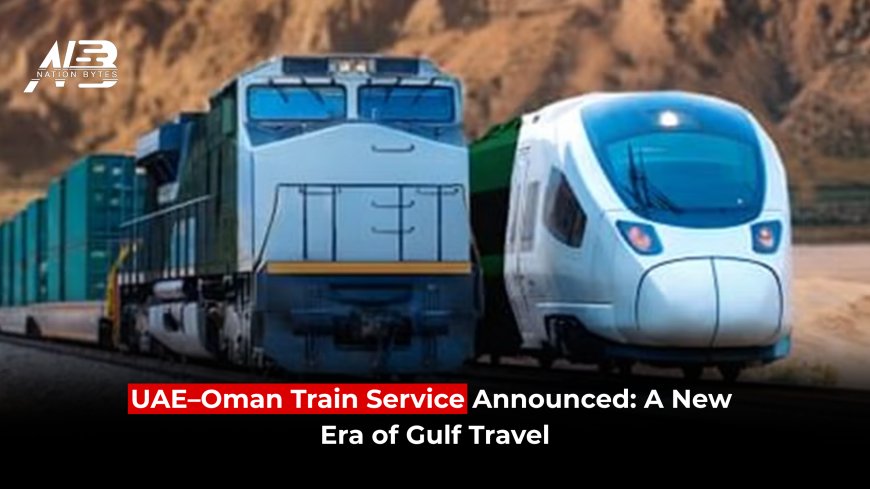UAE–Oman Train Service Announced: A New Era of Gulf Travel
Noatum Logistics and Hafeet Rail unveil a dedicated freight rail link between Abu Dhabi and Sohar seven container trains weekly, 193k TEUs annually, boosting Gulf trade.

A major step toward Gulf connectivity and sustainable logistics has been taken with a preliminary agreement between Noatum Logistics (a subsidiary of AD Ports Group) and Hafeet Rail, the developer of the first cross-border railway linking the United Arab Emirates (UAE) and Oman. The deal, signed at the Global Rail 2025 exhibition in Abu Dhabi, formalises plans for a dedicated container-freight rail service between Sohar (Oman) and Abu Dhabi (UAE).
A New Corridor for Gulf Logistics
Under the agreement, Noatum will operate seven container trains per week once Hafeet Rail’s network is ready, each train capable of carrying 276 twenty-foot equivalent units (TEUs). The annual capacity is projected at 193,200 TEUs, covering 20-foot, 40-foot and 45-foot containers. The cargo mix is planned to include manufactured goods, agrifood, pharmaceuticals, general cargo and other essentials currently moved between the two countries.
Samir Chaturvedi, CEO of Noatum Logistics, commented:
“By linking two of the region’s most strategic hubs via rail for the first time, we are extending the reach of our service and enabling customers to benefit from a mode of transport that is cost-effective, scalable, and sustainable. Beyond its operational impact, our agreement would reinforce regional supply chains, unlock new opportunities, and support the economic integration of the UAE and Oman through infrastructure-led collaboration.”
Ahmed Al Musawa Al Hashemi, CEO of Hafeet Rail, added:
“This agreement marks a new major milestone with dedicated rail service we enable reliable, efficient cross-border container transport between Oman and the UAE, strengthening trade and driving sustainable growth.”
Why It Matters
-
Trade integration: The rail corridor enhances bilateral trade flows and offers an alternative to road transport.
-
Efficiency and cost: Rail freight is more predictable, with higher volume capacity and potentially lower costs than trucking.
-
Sustainability: Rail movement offers lower fuel consumption per tonne-kilometre, helping the Gulf states advance their environmental and carbon-reduction goals.
Strategic Context
Hafeet Rail represents a critical piece of the Gulf rail vision, serving as the cross-border link between the UAE’s Etihad Rail network and Oman. The partnership with Noatum builds on Noatum’s existing rail shuttle service between Khalifa Port and Fujairah (launched Q3 2024) and expands its footprint into the Oman corridor.
Potential Challenges & Execution
-
Infrastructure readiness: The project’s success depends on timely completion of Hafeet Rail’s network and regulatory approvals.
-
Operational alignment: Coordination between Omani and UAE logistics, customs, rail operators and terminals must be seamless.
-
Market demand: Achieving 193,200 TEU capacity depends on market uptake, container-flow optimisation and pricing competitiveness.
However, the preliminary agreement sets the stage for significant momentum in regional freight rail, especially for containerised movement.
Looking Ahead
-
The rail service is expected to launch once Hafeet Rail’s network becomes operational and relevant operational infrastructure is in place.
-
Traders, logistics firms and manufacturers in both countries should prepare for rail-based modal choice alongside maritime and road.
-
Environmental reporting and emission-reduction credentials may become a differentiator for companies utilising the corridor.
For more updates visit: Nation bytes

 Ateeq Ur Rehman
Ateeq Ur Rehman